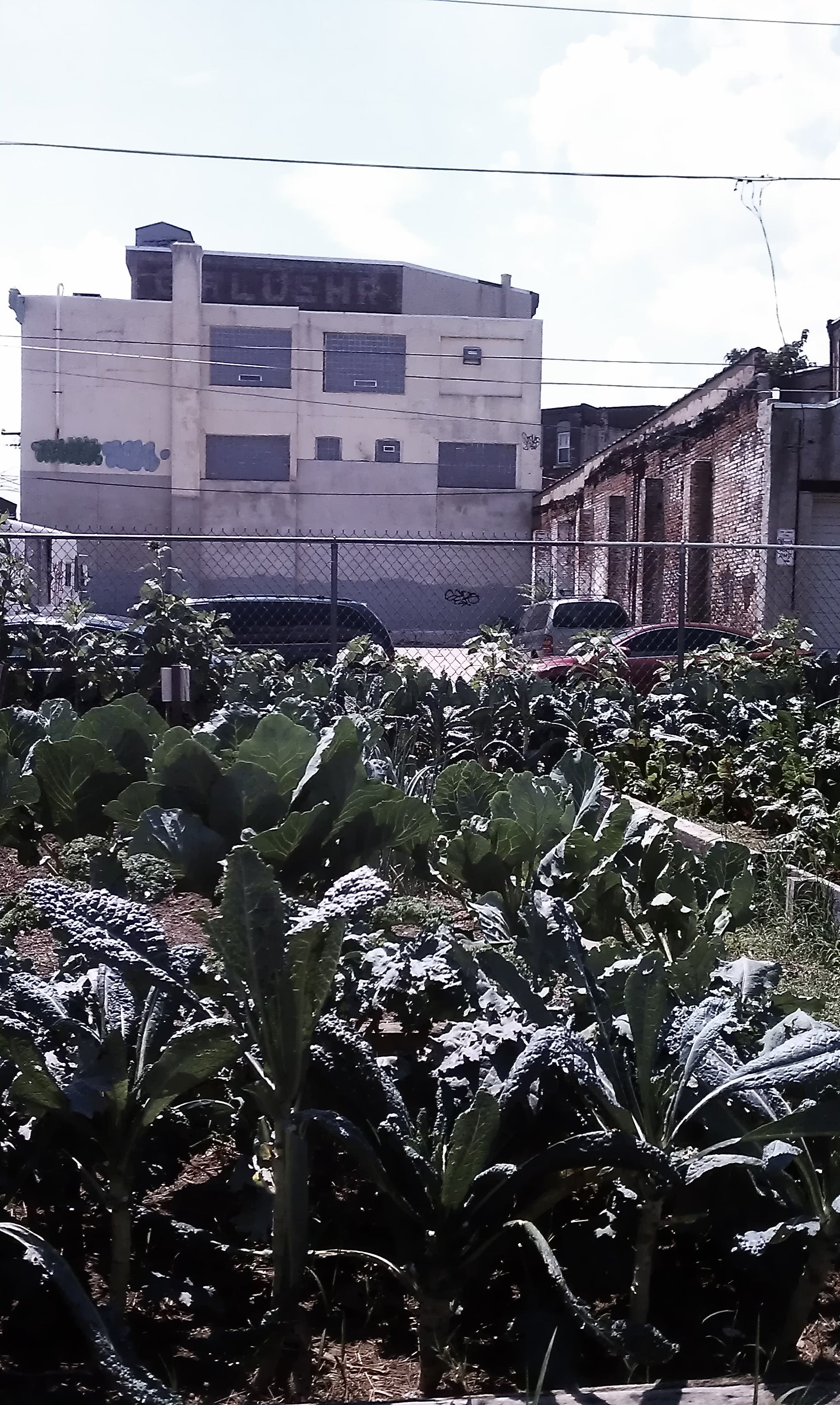Urban Sustainability or Stability

Urban Sustainability or Stability
by Nic Esposito
I was extremely conflicted when I made the move from West Philly to Kensington. Living on the heart of Baltimore Avenue afforded me many of the amenities I had been searching for since deciding that I wanted to live a more sustainable life. I had access to community gardens, well-used parks, an expanding cooperative grocery store and a diverse community of engaged and progressive people.
Although Kensington is gaining a similar critical mass of people and positive energy that revitalized Baltimore Avenue, moving here made me confront a few stark realities both personal and professional. Just around the corner from where I now live was the abandoned building where one of my closest family members spent his last night of addiction. And I’ve lost plenty of childhood friends to the world that confronts me everyday underneath the El.
But I’ve been able to put the past behind me, especially since that family member recently celebrated ten years of clean time and I’ve lost contact with many of those old friends. What I find harder to come to terms with is the impact living in Kensington has had on my professional outlook. For the few years leading up to my move to West Philly and the three years I spent there, I cultivated the ethic that sustainability will be the driving force for change in our society. I expressed this ethic with my words by writing and speaking on the topic, and with my actions by building urban farms and community gardens that have helped feed a lot of people. It’s an ethic I still believe in and I’m proud of all my work.
But even though my wife, community and I have made our small city block in Kensington much more livable by cultivating our urban farm, it’s hard to see the beauty when a drug addict passes out in the park across the street from our house with her needles littering the ground. Or the man with the shopping cart full of scrap hangs on the corner waiting for someone to leave out a shovel out so he can throw it in his cart to go make a buck. All the while the children of the neighborhood have very few support structures to ensure that they go to school, and these are the lessons they learn instead.
Yes, I believe that what we do has positively influenced the people (especially the children) of this neighborhood. And this influence is immediately felt when one of the kids tells me that she had our greens over at the St. Francis Inn soup kitchen where we donate our food. But any good student of sustainability knows that the system does not work in a piece meal way. If sustainability is to work, then it needs to have a healthy, stabilizing affect for all of those systems.
A city operates much like the human body. Just as personal health depends on the entire body being healthy, the city is also an organism and when there are certain parts of the organism that are unhealthy, then the whole organism will eventually become sick. When a high unemployment rate persists, keeping generations of Philadelphians from acquiring gainful employment, and the broken school system denies people access to quality education that will better their prospects, then the city will never regain it’s health. And there are no amount of urban farms or single sustainable projects that will heal the city if we don’t ensure that these projects also systematically address quality of life, education, and employment in this city for the whole.
I realize that I’m making a daunting request. But since moving to Kensington where these problems confront me everyday, I see the danger in putting too much emphasis on the positive, exciting sides of sustainability when there are so many dire stabilization needs facing this city. My only motivation for this piece is to remind all of the proponents of sustainability in Philadelphia to be following policy initiatives like the School Reform Commission as closely as Greenworks, because to truly have a sustainable society, we can’t have one without the other.
———
Nic Esposito is a Philadelphia urban farmer, writer, and founder of The Head & The Hand Press.
Nic shared his thoughts about Philadelphia’s vacant property reform efforts and what they might mean for urban farming efforts like his on Emerald Street in East Kensington for the Eyes on the Street series, Situation Vacant.
WHYY is your source for fact-based, in-depth journalism and information. As a nonprofit organization, we rely on financial support from readers like you. Please give today.




